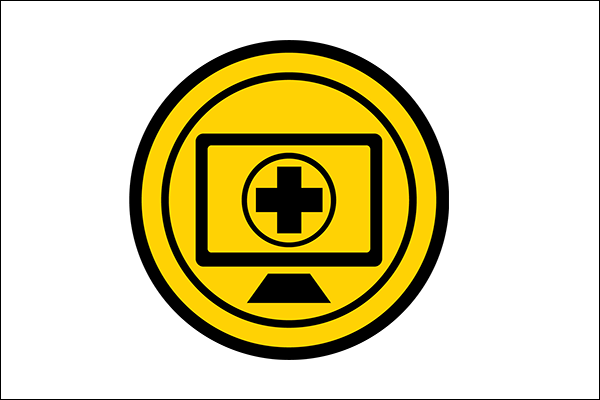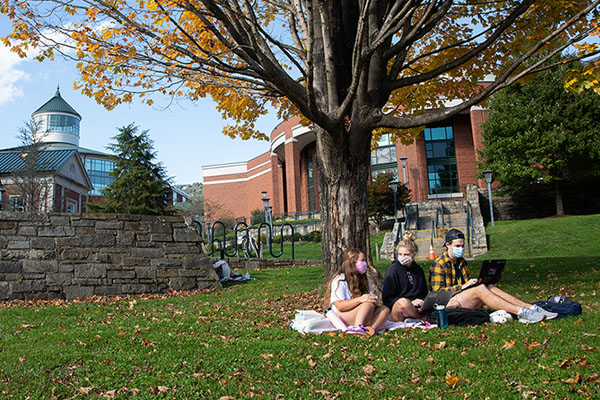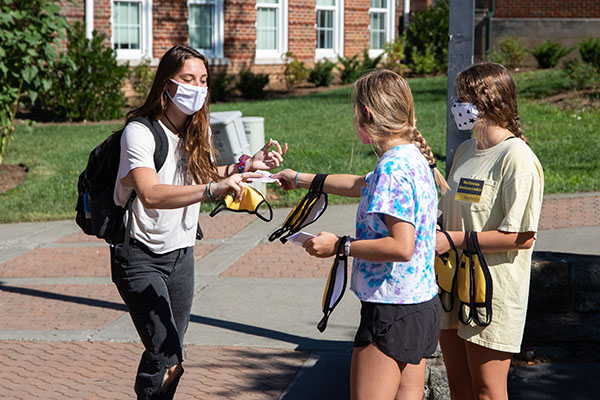
Recent Appalachian State University graduate Emilee Schluth ’20, a public health major from Doylestown, Pennsylvania, offers advice for creating and maintaining pandemic pods based on her experiences during the spring and fall semesters of 2020. She now works in App State’s Wellness and Prevention Services, assisting students with COVID-19 testing and prevention.
BOONE, N.C. — Pandemic pod, social-downsizing circle, pandemic posse, COVID crew. Whatever tag you prefer, how does a college student go about choosing and adhering to this small network that looks out for each other’s well-being during the coronavirus pandemic?
Appalachian State University’s Emilee Schluth ’20, a public health major from Doylestown, Pennsylvania, who graduated in December 2020, offers advice based on her experiences during the spring and fall semesters of 2020. While a student, she interned in the university’s Department of Wellness and Prevention Services (WPS). Since graduating, she has gotten a job there.
Schluth’s scenario offers a glimpse into the experiences faced by many college students balancing academics, employment and self-care, said Dr. Alex F. Howard, interim assistant vice chancellor in the Division of Student Affairs and director of WPS.
“Emilee demonstrates a vigilance regarding risk management, which may help other students identify ways to better manage their activities and pods,” Howard said.
4 tips from Emilee Schluth ’20
Schluth said the core of her pod is the close-knit group of friends she had the most interaction with before the pandemic. “These are seven people I was with on spring break, when we found out App State would be going online. We rely on each other for a lot, including car rides and laundry … we knew we had to stick together,” she said.
Because she held a job in the restaurant industry, she formed a second small pod — which included several members of her first pod, who worked at the same location.
Her circle is up to about 15 individuals, counting the roommates of her podmates. “I would have liked for my circle to stay smaller,” but her group members get tested regularly and ask each other frequently about recent interactions, she said.
Schluth offers these tips for holding a balance between pods at home and work so everyone’s health is considered:
- Stick with select co-workers if you must work in person. “We discussed limiting interaction to our work team and have mostly stuck to that,” said Schluth, indicating she and her podmates have adjusted their behavior to add safety precautions when co-workers have not been as cautious or have communicated their outside interactions.
- Keep open communication about who else you have been around. This could include making a group chat with your pod to give updates. “Don’t assume everyone is being accountable, and keep asking anyone you are thinking of socializing with about their interactions outside of your known common interactions,” she said.
- Get tested when possible. “If you know you have been exposed, isolate and get repeat testing a few days or a week after a negative result, since there is a possibility that you may test negative simply because it is too early to detect it in your system — I’ve seen people be fooled by that,” she said.
- Treat all interactions as a calculated risk. “Just because you have a pod, members of that pod may have different pods as well and may also be exposed in their workplaces or daily activities. Treat all of your interactions as a calculated risk, and share openly with people what you’ve been doing and who you’ve seen,” she said.
Schluth said there were some COVID-19 exposures through pod members’ families or their roommates who had other places of employment and “we alerted each other immediately … we all quarantined and got repeat testing.”
Schluth’s experience, according to Howard, “demonstrates the real walk of a student managing COVD-19, school, work and interpersonal relationships” and offers “a great glimpse into the real living experiences of our students.”
Learn more about COVID-19 testing at App State.
What do you think?
Share your feedback on this story.
About Student Affairs at App State
Student Affairs at App State supports student success and well-being by fostering a culture of care, inclusion and engagement. Its mission is to develop lifelong learners and dynamic leaders through meaningful experiences that challenge and support students. Grounded in a commitment to care, engage and transform, Student Affairs creates a student-centered environment that encourages resilience, leadership, service and global learning. Student Affairs encompasses the following units: Campus Activities, Case Management, the Child Development Center, Community-Engaged Leadership, Counseling and Psychological Services, Office of the Dean of Students, New Mountaineer and Family Engagement, Off-Campus Student Services, Plemmons Student Union, Student Conduct, M.S. Shook Student Health Service, Student Legal Services, Student Veteran Services, University Recreation, and Wellness and Prevention Services. Learn more at https://studentaffairs.appstate.edu.
About Appalachian State University
As a premier public institution, Appalachian State University prepares students to lead purposeful lives. App State is one of 17 campuses in the University of North Carolina System, with a national reputation for innovative teaching and opening access to a high-quality, cost-effective education. The university enrolls more than 21,000 students, has a low student-to-faculty ratio and offers more than 150 undergraduate and 80 graduate majors at its Boone and Hickory campuses and through App State Online. Learn more at https://www.appstate.edu.














